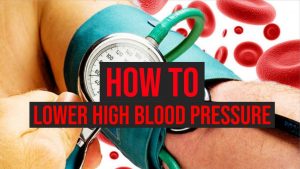Help Your Immune System Protect Against Covid and the Flu
________________________________
What does COVID-19 do to your Immune System?
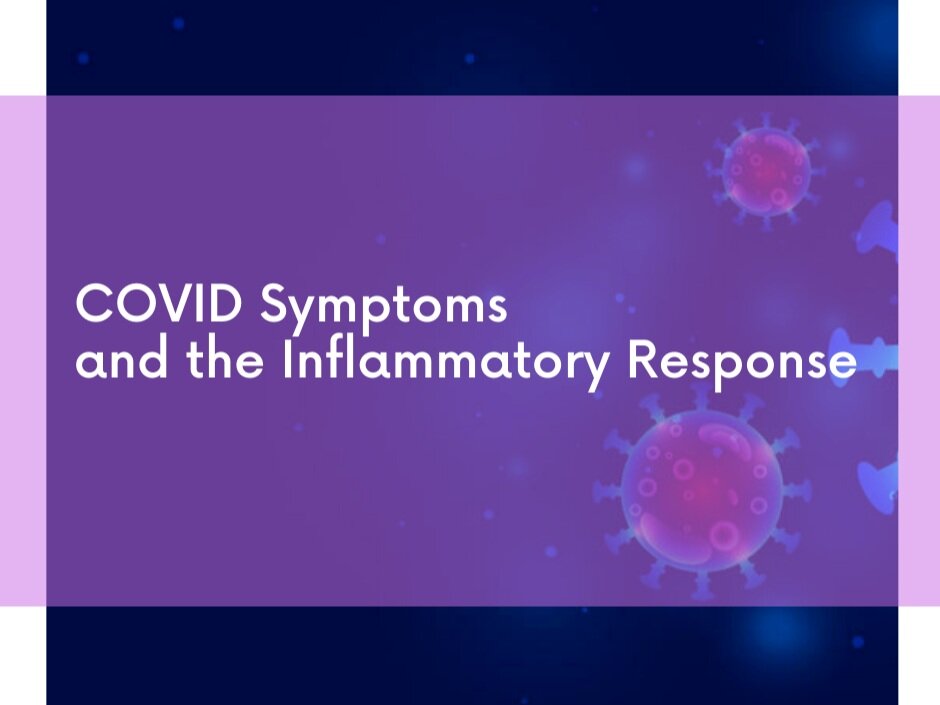
Joseph Roche, an associate professor at Wayne State University who did research on muscular dystrophies, understood that inflammation can do significant damage to the body.
When he read that in severe Covid-19 cases, inflammation was causing severe damage to the body, he began to study the data on COVID.
Initially, doctors thought that immune molecules called cytokines were causing a severe inflammatory response called cytokine storm.
But Roche suspected that it wasn’t cytokines causing the damage but a different molecule: bradykinin.
He believed that an accumulation of bradykinin, which helps regulate blood pressure and affects blood clotting, was causing the inflammation and tissue injury.
By stopping bradykinin, doctors could prevent some of Covid-19’s worst effects.
A few months later, a group of researchers, unaware of Roche’s work, started feeding the world’s second-fastest computer data from about 17,000 blood samples from 1,300 Covid-19 patients.

These researchers, based at the Oak Ridge National Laboratory in Tennessee, programmed a $200 million supercomputer to look for patterns in how Covid-19 was affecting different systems in the body.
The supercomputer ran its program for a week. It returned an answer as to the cause of the COVID problems in the body: Bradykinin.
The overreaction of the immune system in some COVID-19 patients is now being called: Bradykinin Storm rather than cytokine storm.
Researchers believe that these results can help lead to more effective treatments.
_____________________
How Does COVID-19 Affect the Body?

The COIVD virus usually enters the body through the airways and lands on cells.
The COVID virus then uses a protein called ACE2 as an entryway into cells.
The COVID virus then replicates in the cell and finds other cells that have ACE2 receptors, such as in the lungs, hearts, intestines, kidneys, and brain in which to enter and replicate.
When the COVID virus binds with ACE2 receptors, Bradykinin levels increase — causing an inflammatory response.
_____________________
What is Bradykinin Storm?
The hypothesis that Bradykinin Storm was the cause of Covid-19’s bizarre symptoms came from the supercomputer analysis.
Bradykinin naturally lowers blood pressure in our body by making the blood vessels dilate and “leak”.
Researchers have observed many vascular symptoms with Covid, but previously blamed it on cytokine inflammation.
Bradykinin is also involved in blood coagulation, which could possibly explain the strange clotting problems seen in Covid-19 patients and the high percentage of Covid-19 deaths from heart attacks, strokes, and deep vein thrombosis.
High levels of bradykinin can also cause the blood-brain barrier to break down – leading to headaches.
_____________________
How Does a Bradykinin Storm Cause COVID Symptoms?
Fluid in the Lungs
Bradykinin lowers blood pressure by making the blood vessels “leak”.
Excess blood leaks out of the vessels into other areas of the body like the lungs and toes.
The lungs are filled with capillaries that leak blood into the lungs, causing fluid buildup in the lungs. This causes severe shortness of breath in Covid patients.
To make things worse, according to the supercomputer, the virus also increases the production of hyaluronic acid in the body which can absorb more than 1,000 times its weight in water.
So as bradykinin causes blood vessels to leak fluid into the lungs, the fluid combines with the hyaluronic acid in the lungs and forms a hydrogel similar to Jello. “It’s like trying to breathe through Jell-O.”
At that point, no matter how much oxygen is pumped through a ventilator, it can’t get oxygen through the hydrogel.

COVID Toes
Bradykinin works by making the blood vessels “leak.”
So blood leaking into the toes can cause a bruised looking toes called COVID toes.
Vascular Symptoms
Bradykinin is also involved in blood coagulation,
An excess of bradykinin can then cause blood clots to form.
These clots can cause deep vein thrombosis, pulmonary emboli, heart attacks, and strokes.
So this could possibly explain the high percentage of Covid-19 deaths from heart attacks, strokes, and deep vein thrombosis.
_____________________
What Medicines Can Help Against the Flu and COVID-19?
Monoclonal Antibodies: The first type of this drug was authorized for emergency use by FDA on Nov 9, 2020. The drug: Bamlanivimab contains man-made antibodies that are similar to the antibodies of patients who recovered from COVID-19. It is indicated for people recently been diagnosed with COVID-19.
Bradykinin Lowering Drugs: There are currently drugs on the market that target lowering bradykinin.
One drug is icatibant (Firazyr) and another is lanadelumab (Takhzyro), a monoclonal antibody that targets kallikrein.
These treatments that target bradykinin could hopefully lessen lung damage and improve long-term outcomes.
Immune Modulator Drugs: The NIH also has a study to test immune modulators that try to calm the immune system down. The 3 drugs being tested are infliximab (REMICADE), abatacept (ORENCIA), and Cenicriviroc (CVC).
AntiViral Drugs: Remdesivir has already been approved for use in covid patients. It is an antiviral that slows down the replication of the covid-19 virus in the body.
Steroids: (Prednisone) Steroids work by decreasing inflammation and reducing the activity of the immune system.
Over the Counter Supplements: Vitamin D, C, Zinc
_____________________
Icatibant
An existing medication called icatibant is known to be safe and lowers bradykinin. It was already approved by the FDA for treatment of hereditary angioedema.
Frank van de Veerdonk, an infectious disease specialist in the Netherlands, hypothesized in April that bradykinin was causing blood vessels to leak into Covid-19 patients’ lungs.
He published data using icatibant to target bradykinin as a treatment for Covid-19 While not a controlled clinical trial, van de Veerdonk published a study where nine hospitalized patients were treated with icatibant and matched to similar Covid-19 patients who were not. The patients who’d received icatibant needed less supplemental oxygen and experienced no adverse effects from the drug.
In the US, Quantum Leap Healthcare Collaborative has started a clinical trial of five potential treatments, including icatibant. “The safety of the drug is well understood, and it’s fast-acting,” says Paul Henderson, director of collaboration at Quantum Leap.
_____________________
Remdesivir
Remdesivir is an antiviral that slows down the replication of the covid-19 virus in the body.
It has already been approved for use in covid patients.
A study recently published in the New England Journal of Medicine showed:
Those who received remdesivir had a median recovery time of 10 days as compared with 15 days among those who received placebo. The Kaplan–Meier estimates of mortality were 6.7% with remdesivir and 11.9% with placebo by day 15.
The study concluded that Remdesivir is superior to placebo in shortening the time to recovery in adults who were hospitalized with Covid-19 and had evidence of lower respiratory tract infection.
_____________________
Steroids
Steroids like dexamethasone, prednisone and hydrocortisone are inexpensive and readily available drugs.
Steroids calm the body’s immune response, decrease inflammation, have vasoconstrictive properties, and inhibit a protein activated by a bradykinin receptor.
An analysis, run by the World Health Organization, found that steroids used on hospitalized Covid patients reduced the risk of Covid-19 death by 30%— fitting the supercomputer model’s prediction.
_____________________
Bamlanivimab
If you’ve recently been diagnosed with COVID-19, you may have a new treatment option: bamlanivimab (bam-la-NIV-i-mab). The research so far shows that for certain people, taking this drug may help limit the amount of virus in the body. This may help their symptoms improve sooner — and they may be less likely to need to go to the hospital.
But bamlanivimab is a new drug that’s still being studied, so there’s a lot that scientists don’t know about the benefits and risks. It received FDS emergency use authorization on Nov 9, 2020.
It is given in one 700mg dose by IV infusion over 1 hour.
_____________________
What Supplements May be Helpful?
_____________________
Vitamin D: Does it Protect against Covid?
The supercomputer analysis also suggested that COVID-19 breaks down vitamin D.
Vitamin D is very important to the health of the immune system.
In August, a clinical trial in Spain found that taking vitamin D significantly reduced the need for ICU treatment in Covid-19 patients.
A recent study at Boston University Medical Center completed in September 2020 showed that healthy levels of Vitamin D reduced complications from Covid-19 and greatly lowered the risk of dying.
“This study provides direct evidence that vitamin D sufficiency can reduce the complications, including the cytokine storm (release of too many proteins into the blood too quickly) and ultimately death from COVID-19,” explained corresponding author Michael F. Holick, PhD, MD, professor of medicine, physiology and biophysics and molecular medicine.

LINK JAMA Abstract Vit D and COVID Study Sept 2020
_____________________
What does Vitamin D do in the body?
Vitamin D helps keep the bones strong
It also helps keep the immune system healthy
It helps the intestines absorb calcium
Plus: Vitamin D and the Flu: * a global study of 11,000 people has confirmed that vitamin D supplementation can help protect against acute respiratory infections (colds, flu) (see below for more information)
________________________________
How do we get Vitamin D?
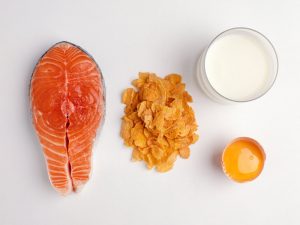
Vitamin D is absorbed through our skin from sunlight
It is also contained in egg yolks and fish liver found in salmon and sardines
It is also added to foods such as milk and baby formula
________________________________
What is the recommended dose of Vitamin D?
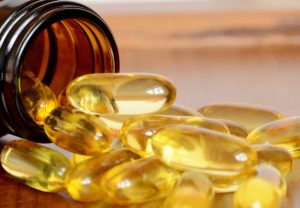
Vitamin D dosing is between 600 IU – 4000 IU a day depending on age and health status
The Institute of Medicine’s Recommended Dietary Allowance (RDA) of vitamin D for ages 18 years through age 70 years is 600 (IU) international units daily.
The RDA is 800 (IU) international units daily after age 70 years.
The Institute of Medicine (IOM) has defined the “tolerable upper intake level” of vitamin D as 4000 (IU) international units daily for healthy adults
Taking more than 5,000 IU a day of vitamin D increases the risk of side effects
Amazon Affiliate Link for 5,000 iu and 2,000 iu (2,000 is usually enough for most people)
________________________________
Does Vitamin D protect against the Flu or Colds?

A large meta-analysis study published in 2017 in the BMJ (British Medical Journal) of 11,000 participants concluded that Vitamin D supplementation was safe and it protected against acute respiratory tract infection overall.
LINK British Medical Journal Study
Patients who were vitamin D deficient experienced the most benefit.
The study showed that all participants experienced some beneficial effects from regular vitamin D supplementation. Administering occasional high doses of vitamin D did not produce significant benefits.
The study was funded by a grant from the National Institute of Health Research (U.K.).
LINK What Causes the Flu and How to Treat the Flu
________________________________
Mayo Clinic Opinion on Vitamin D
“Vitamin D is Generally Safe”
“Without vitamin D your bones can become soft, thin and brittle. Insufficient vitamin D is also connected to osteoporosis and some types of cancer. If you don’t get enough vitamin D through sunlight or dietary sources, you might need vitamin D supplements.”
_______________________________
Safety and side effects of Vitamin D
Taken in appropriate doses, vitamin D is generally considered safe.
However, taking too much vitamin D can be harmful.
It is possible for people who take more than 5,000 IU a day of vitamin D to experience:
- Nausea / Vomiting
- Poor appetite
- Constipation
- Weakness
- Weight loss
- Confusion
- Heart rhythm problems
- Kidney damage
LINK for more detailed information about Vitamin D
_____________________
Zinc and Covid

There’s some thought that zinc may inhibit the entry of the coronavirus into cells.
But there is not have enough evidence to say everyone should be taking it.
Currently, many people use zinc during the cold and flu season.
Be careful how much zinc you take, more is not better! Taking large amounts of zinc can cause side effects.
The FDA has also warned consumers that zinc nasal sprays can lead to loss of smell.
________________________________
Zinc Facts
Your body can’t produce zinc or store zinc
You need a constant supply of zinc from your diet
Zinc is the second-most-abundant trace mineral in your body — after iron
Zinc is in every cell
________________________________
Recommended Dosage of Zinc
Pregnant Women should consume 11 mg
Breastfeeding Women 12 mg
_____________________
What about Vitamin C and Covid?

In terms of COVID, there’s some research happening right now on whether vitamin C shortens the duration and severity of the Covid like it possibly does in colds and the flu.
The result of the research is not back yet.
Except for concerns about people with kidney stones, Vitmin C is generally considered safe.
Evidence suggests a reasonable dose of 250-500 milligrams of Vitamin C a day during cold and flu season may have a protective effect.
_____________________
What to Avoid taking with Covid?
_____________________
Colloidal Silver

Colloidal silver is used as a treatment for infections from the common cold to Lyme disease. It can be purchased in most stores and amazon. But, there’s no evidence to support these claims.
Even worse, when people use it for a long time, their skin develops a blue tinge that does not go away.

It’s important to remember that “natural” is not synonymous with “safe.”
_____________________
Elderberry Extract
There is evidence that elderberry can lessen flu symptoms and support the immune system,.
Elderberry boosts your immune system by increasing cytokines.
So taking elderberry with a Covid infection might lead to an overzealous immune response,
So, for now, elderberry is not recommended until it’s proven to be safe in COVID-19.
_____________________
Is it safe to take Nsaids (ibuprofen) with COVID-19?
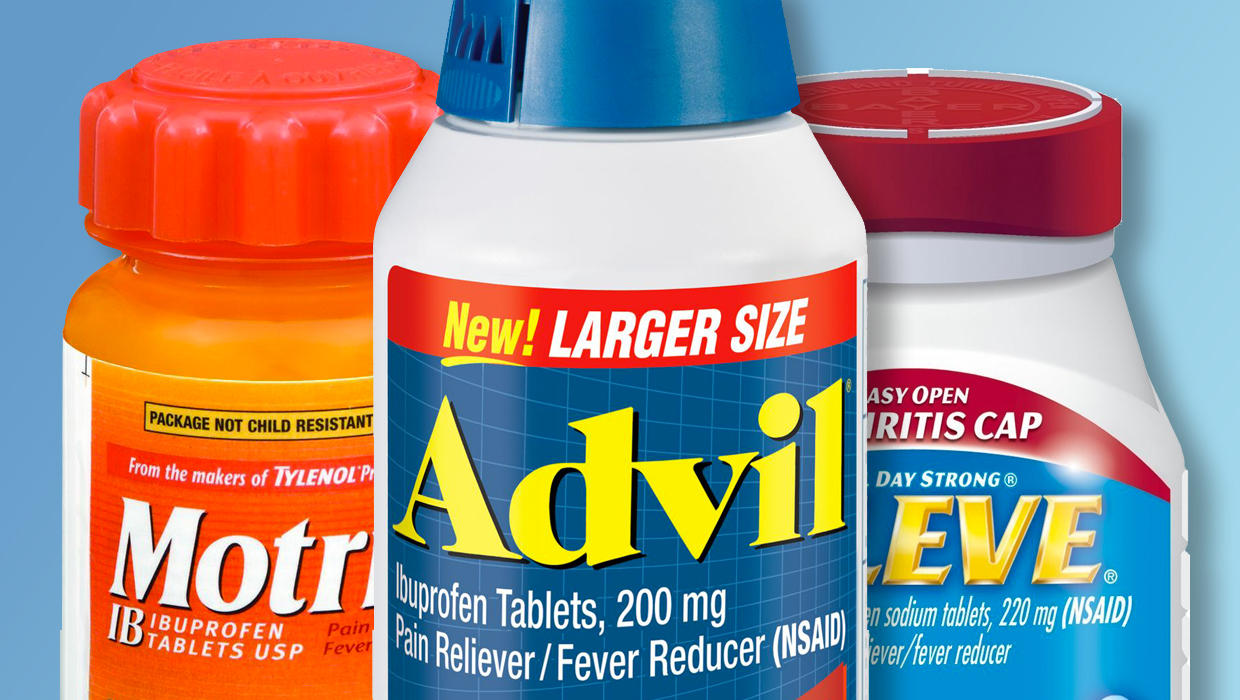
The WHO initially recommended using acetaminophen (tylenol) instead of ibuprofen to help reduce fever and aches and pains related to this coronavirus infection, but now states that either acetaminophen or ibuprofen can be used.
However, rapid changes in recommendations create uncertainty.
Since some doctors remain concerned about NSAIDs (advil, aleve, motrin), it still seems safer to choose acetaminophen first, with a total dose not exceeding 3,000 milligrams per day.
_____________________
Are chloroquine/hydroxychloroquine and azithromycin effective for treating COVID-19?

Early reports from China and France suggested that patients with severe symptoms of COVID-19 improved more quickly when given chloroquine or hydroxychloroquine.
Some doctors were using a combination of hydroxychloroquine and azithromycin with some positive effects.
Hydroxychloroquine and chloroquine are primarily used to treat malaria and several inflammatory diseases, including lupus and rheumatoid arthritis.
Azithromycin is a commonly prescribed antibiotic for strep throat and bacterial pneumonia.
Both drugs are inexpensive and readily available.
Hydroxychloroquine and chloroquine have been shown to kill the COVID-19 virus in the laboratory dish.
The drugs appear to work through two mechanisms. First, they make it harder for the covid virus to attach itself to the cell. Second, if the virus does manage to get inside the cell, the drug seems to kill it before it can multiply.
Azithromycin is never used for viral infections like covid; However, this antibiotic does have some anti-inflammatory action. There has been speculation, though never proven, that azithromycin may help to dampen an overactive immune response to the COVID-19 infection.
The jury is still out regarding whether these drugs can treat COVID-19 viral infection.
While recent human studies suggest no benefit and possibly a higher risk of death due to heart rhythm abnormalities, two studies supporting these conclusions have been retracted by the authors because of irregularities in how results were collected and analyzed.
Where does that leave us? The recommendation has not changed.
Chloroquine or hydroxychloroquine with or without azithromycin should not be used to prevent or treat COVID-19 infection unless it is being prescribed in the hospital or as part of a clinical trial.
 References
References
https://www.mayoclinic.org/drugs-supplements-vitamin-d/art-20363792
https://www.medicalnewstoday.com/articles/161618.php
E. Laird, H. McNulty, M. Ward, L. Hoey, E. McSorley, J. M. W. Wallace‡, E. Carson, A. M. Molloy, M. Healy, M. C. Casey, C. Cunningham, and J. J. Strain. Vitamin D Deficiency Is Associated With Inflammation in Older Irish Adults. Journal of Clinical Endocrinology & Metabolism, February 2014
How to Help Your Immune System Protect Against COVID


